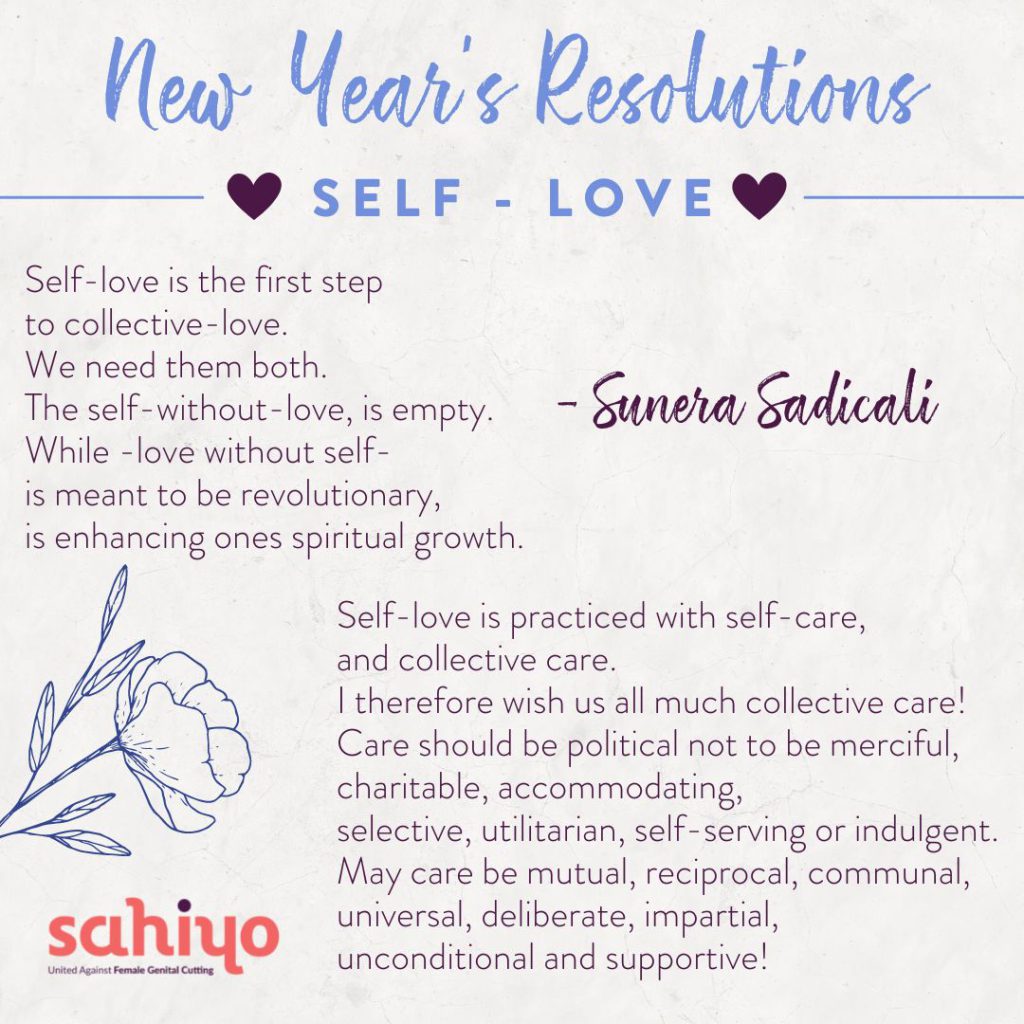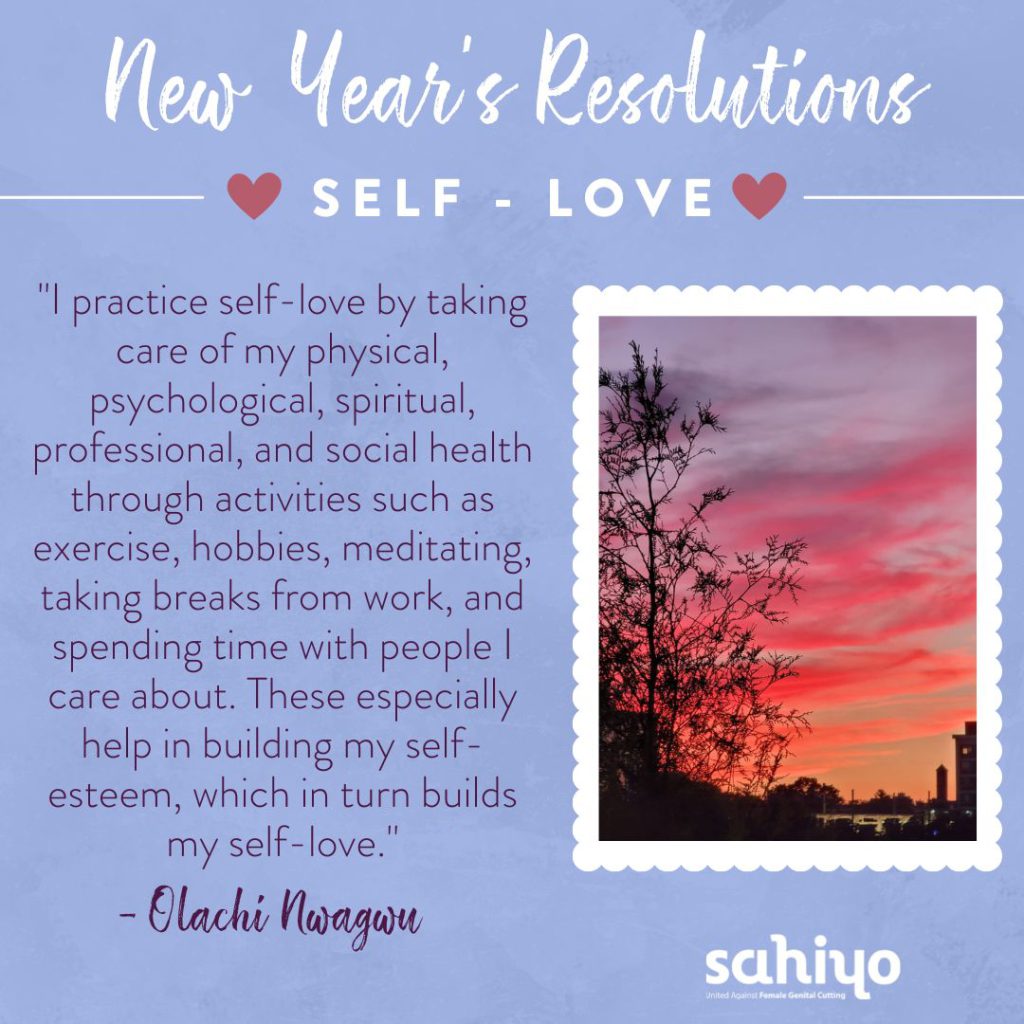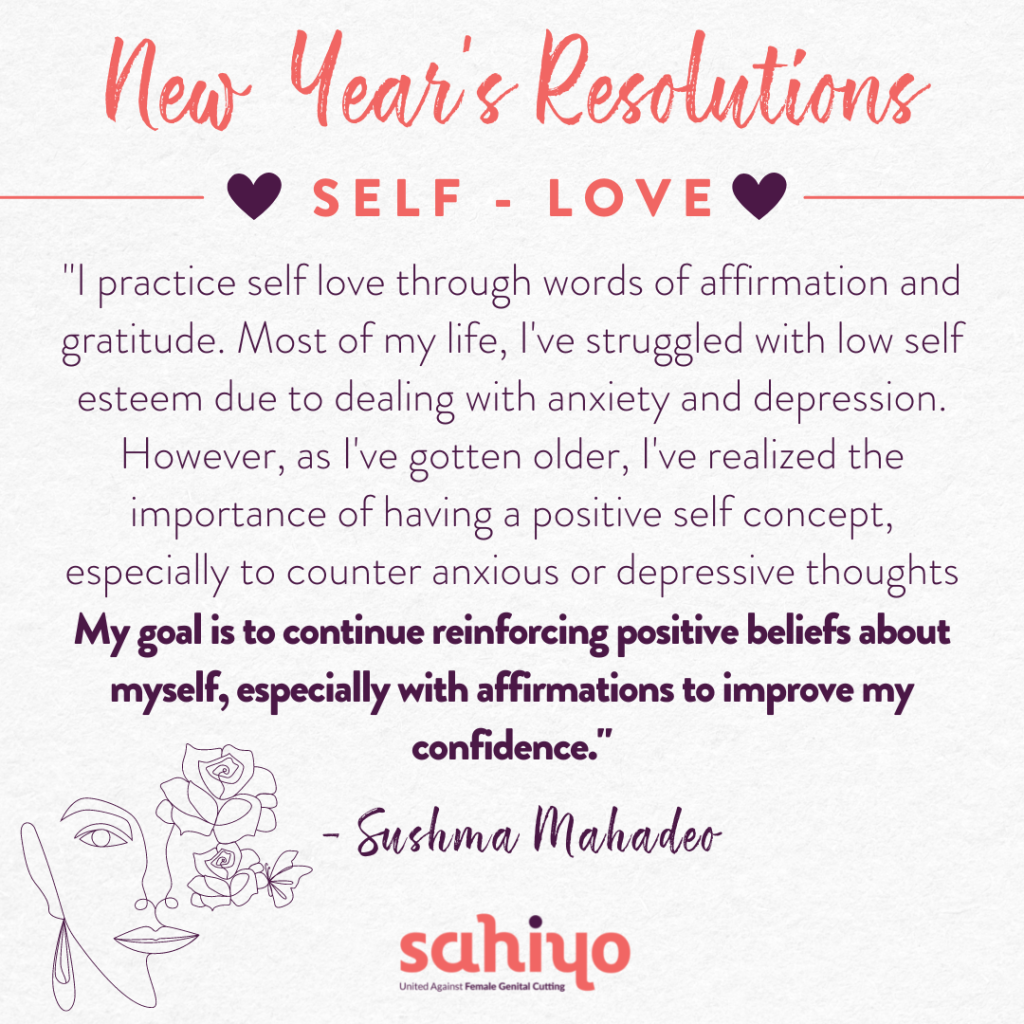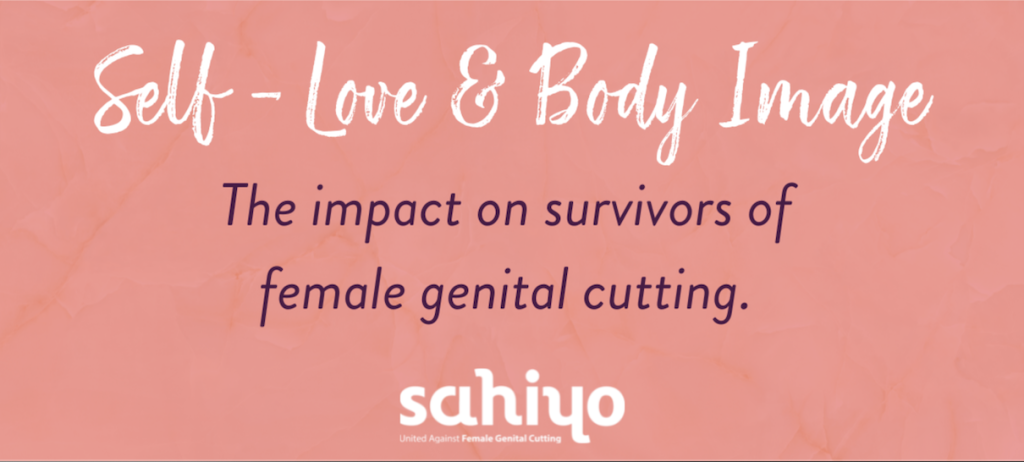Self-love to Sunera

Portuguese/English Version O Amor-próprio évoltar à tua infância, e enfrentar os monstros na cara.É dizer em alto e bom som,já basta.É fazer das tuas entranhas,poesia deliberada.É permitir-te existir sem atalhos,nem rimas que outros compõem para ti. Self-love is the first stepto collective-love.We need them both.The self- without -love,is empty.While -love without self-is meant to be revolutionary,is enhancing one’s spiritual growth. O amor-próprio practica-se com autocuidado,e cuidados colectivos.Desejo pois muitos cuidados ao mundo!Que os cuidados sejam políticos para não serem misericordiosos, caritativos, acomodados,selectivos, utilitaristas, interesseiros ou indulgentes.Que os cuidados sejam mútuos, recíprocos, comunitários, universais, deliberados, imparciais,incondicionais e solidários! “Caring for myself is not self-indulgence, it is self-preservation, and that is an act of poltical warfare”. (Audre Lorde) English version Self-love isgoing back to your childhood,and facing the monsters in the face.It’s saying it loud and clear,enough.It is to make of your entrails,deliberate poetry.It’s allowing yourself to exist without shortcuts,nor rhymes that others compose for you. Self-love is the first stepto collective-love.We need them both.The self-without-love,is empty.While -love without self-is meant to be revolutionary,is enhancing ones spiritual growth. Self-love is practiced with self-care,and collective care.I therefore wish us all much collective care!Care should be political not to be merciful, charitable, accommodating,selective, utilitarian, self-serving or indulgent.May care be mutual, reciprocal, communal, universal, deliberate, impartial,unconditional and supportive!
Self-love to Olachi

By Olachi Nwagwu What does self-love mean to you? In bell hooks’ book All About Love, she defines love as an action, not a feeling. She explores love as a combination of “trust, commitment, care, respect, knowledge, and responsibility.” So based on this, my definition of self-love would be that combination of trust, commitment, care, respect, knowledge and responsibility towards myself. How do you practice self-love? I practice self-love by taking care of my physical, psychological, spiritual, professional, and social health through activities such as exercise, hobbies, meditating, taking breaks from work, and spending time with people I care about. These especially help in building my self-esteem, which in turn builds my self-love. Why do you think self-care is important? I think self-care is important because it helps maintain our overall well-being. I consider my self-care in five categories: physical, psychological, spiritual, professional, and social. I find that a combination of any care under these five categories helps me build and maintain my self-love. Why do you think it is important to practice self-love? I believe it is important to practice self-love because it helps cultivate a healthy sense of self-worth, self-responsibility, and self-acceptance. How do you encourage yourself and your peers to practice self-care and self-love? I try to inspire myself and others to prioritize self-care and self-love by setting an example of self-care and self-love in my own actions, emphasizing the significance of looking after oneself, and sharing information and suggestions for self-care activities. From your perspective, what is the connection between body image and self-love? (how are they related?) I strongly believe there is a close relationship between self-love and body image, as the way an individual views their body can significantly affect their overall self-esteem. In the current society we live in, it is essential to cultivate a positive body image and to understand that self-worth is not solely determined by appearance. What is one thing you did for yourself today? One thing I did for myself today was go shopping with my roommate. This helped me relax and not feel overwhelmed or rushed by work or school. When do you think it is most important to practice self-love? It is most important to practice self-love when feeling overwhelmed or stressed, as it can help cope with difficult emotions and situations better. It can also help make better decisions in the moment when you’ve taken a step back and evaluated everything. Do you have any New Year’s resolutions on how to love yourself better this month and the rest of the year? I think this question can be answered with another quote from bell hooks’ book All About Love: “Self-acceptance is hard for many of us. There is a voice inside that is constantly judging, first ourselves and then others. That voice enjoys the indulgence of an endless negative critique. Because we have learned to believe negativity is more realistic, it appears more real than any positive voice. Once we begin to replace negative thinking with positive thinking, it becomes utterly clear that, far from being realistic, negative thinking is absolutely disenabling. When we are positive we not only accept and affirm ourselves, we are able to affirm and accept others.” Therefore, one of my New Year’s resolutions is to make an effort in prioritizing self-care and self-love daily, particularly through affirmations.
Self-love to Sushma

By Sushma Mahadeo What does self-love mean to you? To me, self-love is about loving yourself unconditionally. It means being proud of yourself on your good and bad days. It’s about being able to look in the mirror and fully accept and like who you are, even if you have insecurities. It’s knowing that you are important just by being on this earth, and worthy of respect. If you love yourself, you don’t tolerate disrespect from others. How do you practice self-love? I practice self love through words of affirmation and gratitude. Most of my life, I’ve struggled with low self esteem due to anxiety and depression. However, as I’ve gotten older, I’ve realized the importance of having a positive self concept, especially to counter anxious or depressive thoughts. I used to think people were lying if they complimented me, especially if they called me beautiful, because I didn’t see it in myself. However, I’ve realized I can retrain my brain to see myself in a better light by making a habit of reinforcing positive beliefs through words of affirmations. I also practice gratitude, and it helps remind me of how abundant my life already is. Gratitude helps put things into perspective sometimes when I’m feeling down about myself. Additionally, I do simple acts of self-care, such as taking time to exfoliate or use a new face mask. Little acts of self-care help me feel more special about myself. How do you encourage yourself and your peers to practice self-care and self-love? I constantly send my friends positive text messages with words of affirmation or reminders of how amazing they are and how much I appreciate and love them. I always tell my friends to be kind to themselves and take care of themselves because they matter, more than whatever is stressing them out. I follow my own advice as well, and reinforce the same affirmations to myself. From your perspective, what is the connection between body image and self-love? (how are they related?) From my experience, I’ve disliked myself more when I had a terrible body image; I didn’t feel confident, or worthy of happiness. I think society keeps trying to impose certain beauty standards and the idea that once we look a certain way, then we can be happy, and only then are we worthy of love and good things. However, those ideas and standards are so harmful, and make so many individuals unhappy. Self-love is about realizing that beauty is unique and that we can appreciate how other people look while also appreciating what we see in the mirror. It’s also about realizing that we are deserving of the best things in life regardless of how we look. What is one thing you did for yourself today? I stretched and exercised my body. Not only did the exercise help me feel good, but I gained a better appreciation for my body. When do you think it is most important to practice self-love? I think it’s most important to practice self-love when you’re not feeling great about yourself. But it’s also important to practice it when you have good days because you deserve to enjoy yourself everyday. Do you have any New Year’s resolutions on how to love yourself better this month and the rest of the year? My goal is to continue reinforcing positive beliefs about myself, especially with affirmations to improve my confidence. Below is a picture of a gratitude journal because I am trying to use one to improve my self-love.
Self-Love & Body Image

By Trisha Kini Body image, which is closely tied to mental health and general wellbeing, refers to the way one perceives their body and the positive, negative, and/or neutral feelings that arise from that perception. Whether it is in relation to skin, hair, or the shape/size of a body part, body image influences people in different ways. Oftentimes, body image has an impact on self-acceptance, self-love, and self-esteem (Canadian Mental Health Association, BC Division, 2015). Beauty standards, which can be shaped by society, our peers, friends, and family, are some of the largest driving factors for the expectations we see for body image today. The beauty standards we observe in films and media that are closely tied with ethnicity, race, body shape, and other features influence viewers to believe that those are the features a human should possess to be attractive and desirable. These expectations have changed over time with ever evolving movies, television shows, magazines, and social media. Today, these standards are often unrealistic, and cause many people to struggle with body image. Although struggling with one’s perception of their body may not be uncommon, it can be detrimental to one’s identity, growth, and mental health. In this blog post, we will explore how body image can impact survivors of female genital cutting (FGC), and provide resources on how to navigate conversations related to body image, self-love, and FGC. [youtube url=”https://www.youtube.com/watch?v=tEpJ20ArbTA&t=1s”] Lena describes her experience with FGM/C and the shame she felt FGC survivors can be impacted by body image It is imperative to acknowledge that survivors of FGC are impacted by body image in ways that non-survivors may not be able to relate to. Body image, and the negative feelings that arise, can also prevent survivors of FGC from seeking medical care due to stigmatization associated with female genitalia, as well as women’s and gender non-conforming, non-binary individuals’ bodies. This impact can deter survivors from enthusiastically seeking healthcare or trusting their health provider. Additionally, survivors of FGC may struggle with body image in a way that also impacts sexual activity. Centering survivors in conversations related to body image When talking with survivors about body image, it is important to center survivors in the conversation. Listening, and reflecting on their feelings with regard to their experiences with body image can allow more space for survivors to feel heard and validated. Keeping in mind that everyone’s relationship with their bodies differs based on their life experiences can be helpful when navigating conversations surrounding body image, self-love, and acceptance. Expressing your appreciation for their trust in sharing, and encouraging their growth and journey in understanding their relationship with themselves can also be validating and allow the person sharing to feel more comfortable with expressing their feelings. Learn more To learn more about seeking support and supporting survivors of FGC, we have included several resources below. We hope to elevate more conversations about self-love, and encourage our community to share these resources and talk more about the measures and steps you take to practice self-love, self-care, and body positivity. Resources on how to Support FGC Survivors: United Against Female Genital Cutting – Sahiyo Resources Sahiyo – United Against Female Genital Cutting – Survivor Support Resources Sahiyo – United Against Female Genital Cutting – FGC Survivor Support Line Voices to End FGM/C Website Non-Sahiyo Resources: Survivor Mental Health Support Group About FGC and Mental Health U.S. Network to End FGM/C Resources
